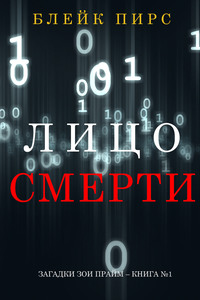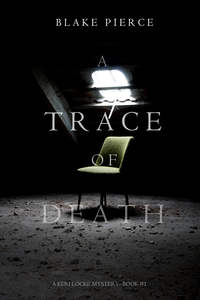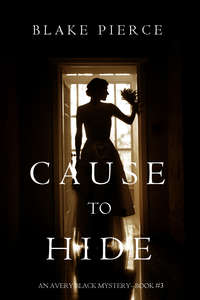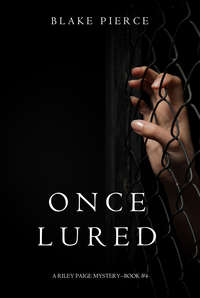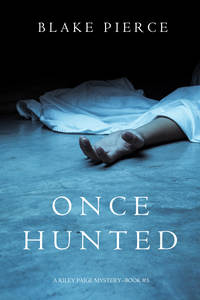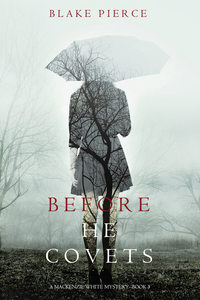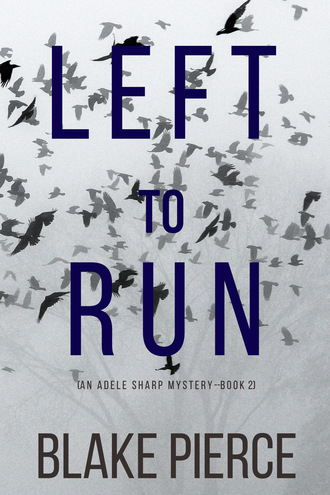
Полная версия
Left To Run
Now, though, in the small, stuffy San Francisco apartment… it was all so quiet again.
Adele shifted once more, listening to the creak and protest of the poorly constructed chair. A phrase from her childhood, one of her father’s favorites, crossed her mind. “Simple things please simple minds.” In a sort of phantom protest, Adele wiggled in the chair, listening to the strangely consoling creak of wood one last time, before she gritted her teeth, still pressing her makeshift disinfectant wipe against her wound, and then she regained her feet and trudged down the hall.
“Bloody Renee,” she muttered.
Jason Hernandez never would have bolted if John had been there. She missed France. After the interview with Interpol, she’d spent some time with Robert. A nice time—refreshing in its own way. It had given her an opportunity to look for her mother’s killer.
Adele pushed open the bathroom door at the end of the hall and stood in front of the mirror. It was a small, cramped bathroom. The shower sufficed as Adele hadn’t taken a bath in nearly six years. Showers were far more efficient. The Sergeant—her father—likely hadn’t taken a bath his entire life.
She sighed again as she undressed and stepped into the shower, turning on the hot water, but the spray was still lukewarm. Another little flaw of the new apartment. The water pressure wasn’t great either, but would have to do.
As Adele stood beneath the tepid drizzle, she closed her eyes, allowing her mind to wander, pushing past the events of the day, of the past couple of months back in the States.
Words played through her mind.
“…Honestly, it’s funny you left Paris, you know that? Especially given where you worked.”
She sighed as the water soaked her hair and began to drip down her nose and cheeks in slow uneven pulses, matching the temperamental jets from the showerhead. Yet she kept her eyes closed, still mulling over the words. They echoed—sometimes even when she slept—resonating in her head.
That’s what the killer had said.
Back in France. A man who’d sliced his victims and watched them bleed out, helpless and alone. She and John had caught that serial killer, but not before he had nearly murdered her father. He’d nearly killed Adele, too.
The bastard had worshiped her mother’s killer. Another murderer—so many of them.
Adele’s brow bunched in the stream of water as she clutched her fists and her knuckles pressed against the cold, slick white plastic pretending to be porcelain.
John had killed the serial killer before he’d ended Adele, but that had only left her with more questions. Part of her wished he’d been allowed to live.
Why was it funny she’d left Paris? That phrase haunted her now. She kept running it through her mind. Funny you left Paris… especially given where you worked… Almost like he was teasing her. They had been talking about her mother’s killer.
Paris. She was nearly certain now. Her mother’s murderer had lived in Paris. Perhaps he still did. He would be what, fifty? Adele shook her head, sending water droplets scattering across the shower onto the slick floor.
She gritted her teeth as more lukewarm liquid pulsed in uneven jets from the nozzles.
In a surge of frustration, she twisted the knob the full way, but the water didn’t warm. Adele blinked, her eyes stinging against the trails of liquid inside the slope of her cheeks. She stared in anger at the shower knob, the arrow pointing at the culmination of a red slash.
“Fine then,” she muttered.
She grabbed the handle and twisted it the other way. Small disciplines compounded over time. The cold water began to arc on her head and sent goosebumps rising on her arms. Adele’s teeth began chattering within moments, and the pain in her side faded to a numb chill as the cold water turned frigid.
Still, she stayed in the shower.
The killer had taunted her. As if he’d known something. Something she’d missed. Something the authorities had missed. What was relevant about her workplace? That part bothered her the most. It was almost as if… She shook her head again, pushing back the thought.
But… what if it was true?
What if her mother’s killer was somehow connected to the DGSI? Maybe not the agency itself, but the building. Perhaps there was a proximity. What else would make sense of his words?
Especially given where you worked…
The man John had shot had known something about her mother’s killer. But he’d taken it to his grave. And the Spade Killer, the man he had worshipped, the man who had killed her mother, was still out there.
The cold water continued to seep down the angled slope of her shoulders, and she drew in small, quick breaths against the sensation, but still refused to move.
She would be sharp next time. They had asked her to join a task force with Interpol on an as-needed basis. But Adele was itching to return to Europe. She liked California, and she liked working with the FBI, especially with her friend Agent Grant as supervisor. But her desire to solve her mother’s murder required a level of proximity.
Finally, pushing one forearm against the glass door, gasping, Adele twisted the shower knob.
Mercifully, the freezing water stopped. She stood trembling in the glass and plastic partition for a moment as the water dripped off in quiet taps.
Whoever designed the bathroom had placed the towel rack on the back of the door on the opposite side of the room. It took a few steps to reach it, and though she had a bathmat on the floor to absorb water, she preferred to wait in the shower a bit to dry off before stepping out.
And so she waited, thinking, contemplating, shivering. She thought of another time, soaked in water, also shivering…
A flash of warmth crested her cheeks. She thought of swimming in Robert’s pool—John had come over for an evening…
He was insufferable. Rude, obnoxious, annoying, unprofessional.
But also handsome, said a small part of her. Dependable. Dangerous.
She shook her head and stepped from the shower, causing the glass and metal door to squeak open and slam into the yellow wall; a few flecks of paint chips fell from the ceiling. Adele sighed, glancing up. Already patches of mold had formed beneath the coating. The previous tenant had painted over it, which had only served to disguise the issue.
Perhaps she should text John.
No, that would be too familiar. An email then? Too impersonal. A call?
Adele hesitated for a moment and reached for her towel, pulling it off and drying her hair. A call might be nice. She reached down to her side with the scrape and winced against the minor injury.
Some wounds healed slowly. But other times, it was best to avoid a wound altogether. Perhaps it was better she didn’t call John at all.
Exhaustion weighed heavily on her shoulders as she moved through the house to the bedroom. Her eyelids were already beginning to droop. Three hours of overtime, filling out paperwork and justifying the shooting, had taken their toll.
It was a horrible thought, but Adele was starting to wish for a case in Europe.
Perhaps something that didn’t hurt anyone too badly. Just something to get her out of California. Out of the small, cramped apartment. It was too quiet. For some people, the sounds of other human beings moving around, enjoying their lives, assuaged them. It staved off bouts of loneliness.
Adele sighed again, and she moved into her room, donning bedclothes. She reaffixed a bandage on her scrape and tried to push back any further thoughts of animosity toward her new young partner. She flopped into bed and lay there for a few minutes.
In the past, she and Angus would watch TV as they drifted off. Sometimes he would read a book, narrating it line by line out loud so she could enjoy it too. Other times they would just snuggle and talk for a few hours before they drifted off.
Now, though, she lay in her bed. No TV. No books. Just quiet.
CHAPTER THREE
Melissa Robinson moved up the apartment steps, humming quietly to herself. In the distance, she heard the bells from the city. She paused to listen, her smile only widening. She’d been living in Paris for seven years now, yet the sounds never grew stale.
She turned up the next set of steps. No elevators in this apartment. The buildings were too old. Cultured, she thought to herself.
She smiled again and took the stairs one at a time. There was no rush. The new arrival she was going to meet had said two o’clock. It was 1:58. Melissa paused at the top of the landing, glancing out the wide window into the city beyond. She hadn’t grown up in Paris, but the place was beautiful. She glimpsed the old, yellowed stone structures of buildings older than some countries. She noted the angled pattern of apartments and cafes and crisscrossing streets through the heart of the city.
With another contented sigh, Melissa reached the door on the third floor and politely extended her hand, tapping on the frame. A few moments passed.
No answer.
She continued to smile, still listening to the bells and then glancing back out the window. She could just see the low-peaked steeple of Sainte-Chapelle spiraling against the horizon.
“Amanda,” she called out, her voice pleasant.
She remembered the first time she’d come to Paris. It had all seemed overwhelming. Seven years ago, an expat from America, resituating in a new country, a new culture. Knocks on the door had been a welcome distraction at that time. Melissa knew many of her friends in the expat community had a difficult time adjusting to the city. It wasn’t always as friendly at first blush, especially not for Americans, or for college-age kids. She remembered her time on an American campus for the first two years. It was as if everyone had wanted to be her friend. In France, people were a bit more reserved. Which, of course, was why she helped organize the group.
Melissa smiled again and tapped on the door once more. “Amanda,” she repeated.
Again, there was no response. She hesitated, glancing up and down the hall. She reached into her pocket and fished out her phone. Smartphones were all well and good, but Melissa preferred a bit of an older style. She scanned the old flip phone and noted the time on the front screen. 2:02. She scrolled through the text messages and scanned Amanda’s last text.
“I’d be happy to meet you later today. Say, 2pm? Looking forward to the group. It’s been hard making friends in the city.”
Melissa’s smile faltered a bit. She remembered meeting Amanda—a chance encounter in a supermarket. They’d hit it off immediately. The bells seemed to fade in the distance now. On a whim, she reached out and felt for the door handle. She twisted and found that it turned. A click, and the door shifted open just a crack.
Melissa stared.
She would have to make sure Amanda knew about the dangers of leaving her door unlocked downtown. Even in a city like Paris, caution preceded safety. Melissa hesitated for a moment, caught in a crisis of conscience, but then, at last, she eased the door open completely with a gentle prod of her forefinger.
“Hello,” she called into the dark apartment. Perhaps Amanda was out shopping. Maybe she’d forgotten the appointment. “Hello, Amanda? It’s me, Melissa from the forum…”
No answer.
Melissa didn’t consider herself a particularly nosy sort. But when it came to Americans in Paris, she had a sense of kinship. Almost like they belonged to the same family. It didn’t feel so much like intruding as checking in on a little sister. She nodded to herself, justifying the decision in her mind before she stepped into the apartment of a woman she’d only met once before.
The door creaked again as her elbow brushed against the frame, causing it to shift open even more. She hesitated and thought she heard voices from down the hall. She popped her head back out and looked up the hallway toward the edge of the stairs.
A young couple moved along the banister, noted her, and instead of nodding or waving, continued on their merry way. Melissa sighed and moved back into the apartment—and then froze. The fridge was open. A strange slant of yellow light extended from the compartment across the kitchen floor.
Amanda was there. Sitting on the floor, facing the opposite wall. Her back was half against the cabinet, one shoulder blade pressed against the wood, the other extending past, her left arm resting on the floor.
“Did you spill something?” Melissa asked, stepping even further into the darkened room.
Wine puddled on the ground beneath Amanda’s left arm. Melissa took another few steps and turned to face Amanda, still smiling.
Her smile froze. Amanda’s dead eyes stared up at her, gaping over a thick slit in her neck. Cold blood stained the front of her shirt, spilling down to the floor where it had thickened against the linoleum.
Melissa didn’t scream, nor did she shout. She merely gasped, her fingers trembling as she struggled to fish out her inhaler. She stumbled toward the door, grabbing her inhaler with one hand and snagging her phone with the other.
After a few puffs of air, she loosed a gurgled groan and, with trembling fingers on her flip phone buttons, she tapped 1-7 for the police.
Still gasping, back against the wall outside the open door to the apartment, she swallowed and waited for the operator to pick up. Behind her, she thought she could hear the vague, fading sound of liquid dripping against the floor.
Only then did she scream.
CHAPTER FOUR
Adele checked her smart watch, cycling through the different screens that kept an eye on her heart rate, movement, music… She inhaled through her nose where she stood in the doorway of her apartment and glanced up at the clock. Four AM exactly. Plenty of time to get in a two-hour run before work. She adjusted the sweatband holding back her hair and glanced over her shoulder toward the sink.
She had left her plastic Mickey Mouse bowl sitting on the metal partition between the sink and the counter. Normally, Adele cleaned up the moment she made a mess. But today, in the small, quiet apartment…
“It can wait,” she said to no one in particular. Which, of course, was part of the problem.
Last night had been one of fitful rest, sleep eluding her. Adele stood in the doorway as the digital watch ticked to 4:01. She glanced back at the sink, then muttered beneath her breath and reluctantly strode into the kitchen, grabbed her plastic bowl, and turned on the water with an irritated snap of her wrist. She rinsed out the milky residue in the bottom, placed the bowl in the dryer rack, and headed back toward the door.
Before she could turn the doorknob, though, a quiet chirping sound caught her attention. Adele’s eyes darted to the kitchen table. Her phone was vibrating.
She frowned. The only people who would call her this early were her father in Germany, or work.
And she had just spoken to her father a couple of days ago. It was little surprise, then, when she glanced down at the glowing blue green screen depicting a single word in white letters.
Office.
She picked up her phone as the buzzing noise faded. Adele read three simple words in black text flashing across her screen. Urgent. Come in.
Adele removed her sweatband and hurried back to her room to change into work clothes. The jog would have to wait.
***From the parking lot, through the security checkpoints, Adele only paused once to drop off coffee to Doug, one of her friends on the security team. By the time she reached the fourth floor, and Supervising Agent Grant’s office, she could already hear voices through the opaque glass door.
Adele pushed in and pulled up short.
Two large TV monitors set in the wall depicted faces Adele recognized. On the left, over Grant’s desk, Executive Foucault, the DGSI supervisor. On the right, situated near a blue-tinted window with a view of the city, Adele spotted Ms. Jayne, a correspondent for Interpol who had first proposed the idea of a joint task force headed up by Adele.
Agent Lee Grant, who’d been named after the two generals in the Civil War, stood behind a metal standing desk, her fingertips steepled beneath her chin, a troubled expression on her face. She glanced up at Adele, waving her in with quick scattered gestures. Agent Grant’s office was sparse, with a yoga mat in one corner and a pile of workout DVDs hidden beneath a blue plastic binder next to her desk.
Agent Grant gestured to one of the empty stools in front of her standing desk and waited for Adele to sit. At last, she cleared her throat, regarding Adele with a nod, and said, “They need you back in France.”
Adele looked between the TV monitors. Ms. Jayne’s and Foucault’s gazes were just a bit off, each of them glancing at the various screens at their disposal rather than looking directly into their cameras. Still, Adele couldn’t help but search the gaze of Ms. Jayne and the DGSI executive, trying to discern their motives.
“Is it bad?” Adele asked, hesitantly.
Ms. Jayne cleared her throat, and in a clear, crisp voice, said, “Only two victims so far. I’ll let Foucault fill you in on the details.” Ms. Jayne was an older woman, with bright, intelligent eyes behind horn-rimmed glasses. She had silver hair and was a bit heavier than most field agents. She spoke without an accent, suggesting she’d mastered the English language, but it didn’t seem as if it were her native tongue.
On the other screen, Executive Foucault’s dark eyes narrowed over a hawkish nose; he shook his head and seemed to be glancing down off screen—there was the sound of rummaging papers.
“Yes, yes,” he said in heavily accented English. “Two dead. So far. Two Americans,” he added, glancing up at the screen. “Or, at least, were Americans.”
Adele frowned. “What do you mean?”
Foucault’s gaze flitted across the screen one way then the other, not quite lining up with anyone in the room, but suggesting that perhaps he was glancing between portions of his own computer screen.
“Expatriates,” he said. “Americans now living in France. Both had visas, but were applying for citizenship, or at least one of the victims did. The other only recently arrived.”
Adele nodded to show she’d heard. “So why do you need me?”
Ms. Jayne cleared her throat. Her voice came clear, even through the crackle of the speakers. “We need someone who’s familiar with the DGSI, but who America is comfortable investigating their own. The unique nature of the crimes could also use someone with your expertise.”
Adele frowned. “What unique nature?”
Foucault replied, “Two dead so far. Throats slit, nearly ear to ear.” He adopted a grim tone and continued, “I’ll send the files along as soon as I’m cleared by the coroner. Both young women, both recent arrivals. We’re investigating, of course, and I’m sure our agents will come up with some good leads, but,” he frowned again, glancing at his computer screen, “Ms. Jayne seems to think it would be wise to involve you early on. I can’t say I fully agree, but it’s not my hill to die on.”
Adele raised a hand while he spoke, waiting for him to finish. He noticed this, and nodded for her to speak.
“How long between the murders?” she said.
The executive replied without hesitation. “Three days. The killer is quick. It’s worth noting there’s no physical evidence at the scene.”
Adele shifted in her seat, realizing this chair didn’t make as much noise as the one back in her kitchen. “What do you mean?”
“I mean there’s no physical evidence.”
“None?”
Foucault’s frown deepened, his bushy eyebrows pressing together. “None at all. No fingerprints, no traces of hair or saliva. No sexual assault that we could find. The cuts alone, according to the coroner’s initial report, were strange. Whoever did this slit their necks, but did so without a quavering hand—a practiced motion.”
“And what does that mean?” Adele asked.
“If I may,” said Agent Grant, speaking for the first time from behind her standing desk, “cuts and slicing wounds carry a sort of signature. Whether the attack was left-handed, or how strong they were, or how tall…”
Foucault nodded with each passing word and cleared his throat. “Exactly. But these particular attacks were done by someone without much signature at all. There’s no physical evidence. No sign of a struggle. No forced entry. Nothing suggesting any foul play, except, of course, two corpses in downtown Paris.”
“Well,” said Ms. Jayne, peering through the screen now. Her eyes seemed to have readjusted for a moment, now fixating firmly on Adele. “Are you ready for your flight?”
Adele flicked her eyes to Agent Grant and raised her eyebrows.
Grant hesitated. “You sure you don’t want to spend another couple of weeks with Agent Masse?” she said, her tone betraying no emotion whatsoever.
Adele scowled.
Grant’s eyes twinkled in a morbid sort of humor. “I’ll take that as a no. Already signed for your leave and reassigned Masse. You’re good to go.”
Adele tried to suppress the sudden jolt of emotion—she was a professional, after all—but as she pushed from her chair, she couldn’t help but feel excitement at the thought of returning to France.
“Is there anything else I should know?” she asked, glancing at Foucault.
“I’ll send you the reports,” he said with a shrug. “But they’re short. As I told you, not much evidence. There is one thing. A strange detail, but certainly important…”
“What?”
“The first victim’s kidney was missing.”
A strange silence fell over the room for a moment, and the two crackling screens and the two agents in the San Francisco office waited, all of them frowning.
“Her kidney?” said Adele.
“Just so,” said Foucault.
“Is the killer taking trophies?”
The executive shrugged, his thick brow narrowing over his sharp nose. “Well, that’s what you’re here for, isn’t it? You provide the answers. It’s my job to provide the questions. I’m told Ms. Jayne has already purchased your ticket. First class. Your flight departs within the hour.”
CHAPTER FIVE
Adele frowned at her laptop, leaning back in the first-class seat provided to her by Interpol. The plane shuddered as it cut through the sky, but Adele had closed the adjacent blind, allowing the glow from the computer screen to illuminate the cramped portion of airplane cabin.
She found herself twisting the strap to her laptop bag nervously where it rested in the empty seat next to her, surveying the information on the screen again. Once she read a case file, she rarely forgot the details.
She settled in, leaning against the curving white wall of plastic, her eyes flicking from paragraph to photo.
Two dead so far. Three days apart. A rapid pace, even for a serial killer. No physical evidence of any sort. A missing kidney in the first victim and a pending coroner’s report for the second. Would she also be missing a kidney?
Young women, both. Expats—Americans now living in France. Recent arrivals, too. Both killed so quickly they hadn’t even reacted. That was the only explanation for the clean nature of the cuts. No jagged slices, no signs of a struggle. One moment, the young women had been alive, in their own apartments, the next, seemingly as if by a ghost, they had been snuffed out.
Adele doubted the women had even seen it coming. Not much to go on—not yet anyway. Still, she kept the window blind low, listening to the churn of the engines as they hurtled through the air. Her eyes narrowed as she scanned the case file again and again… and again.
***She’d been able to connect to the Charles De Gaulle Airport Wi-Fi, and her eyebrows twisted down as she looked at the most recent message from Robert Henry, her old mentor and friend. It said: Sorry, dear, I won’t be picking you up. They sent another agent. Then he’d included a series of emojis and smiley faces.
She paused, then typed: No problem. I’ll see you at the office. Who did they send?
No response. Adele shook her head as she exited the walkway and entered the main terminal, greeted by the odor of overpriced coffee and stale pastries from the airport restaurants. Her eyes flicked along a series of shops; one for curio items, and another a bookstore. Adele pushed her phone back into her pocket, moving quickly through the airport toward baggage claim. Last time, she’d been paired with John—likely it would happen again. But they’d left things awkward after the last visit. While she and Robert had messaged each other every few days in the month since she’d been in France, John hadn’t reached out once.


